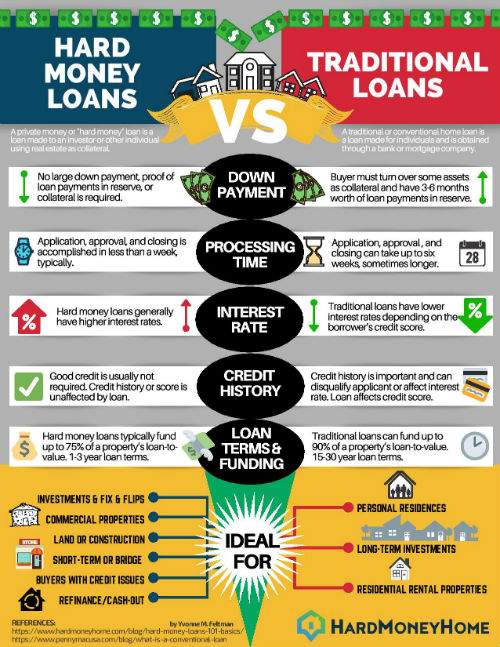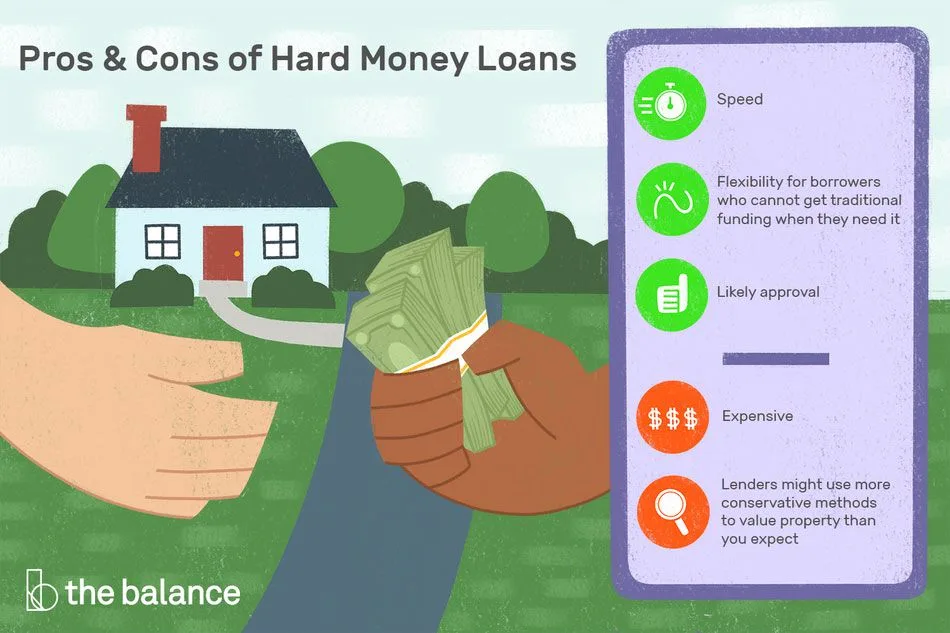Are you considering using a hard money loan to purchase a primary residence? If so, it’s important to understand the implications and possibilities that come with this alternative financing option. While hard money loans are primarily used for real estate investment purposes, there are cases where they can be used to acquire a primary residence. However, it’s crucial to carefully evaluate the terms and conditions of the loan and assess your unique financial situation before making a decision. In this article, we will explore the potential benefits and drawbacks of using a hard money loan for purchasing your primary residence, allowing you to make an informed choice about your homeownership plans.
What is a hard money loan?
Definition of a hard money loan
A hard money loan, also known as a private money loan, is a type of financing that is typically secured by real estate. Unlike traditional mortgage loans, hard money loans are often provided by private lenders or investors who are willing to take on higher risk and provide faster funding. These loans are generally short-term and have higher interest rates and fees compared to conventional loans.
How hard money loans work
Hard money loans are primarily based on the value of the property being used as collateral. Instead of focusing on the borrower’s creditworthiness or income, hard money lenders are more concerned with the potential value of the property and the borrower’s ability to repay the loan. The loan amount is typically a percentage of the property’s value, known as the loan-to-value (LTV) ratio.
Once approved for a hard money loan, the borrower receives the funds relatively quickly, often within a few days, making it a popular choice for real estate investors or individuals seeking fast financing. These loans usually have a short repayment term, typically ranging from a few months to a few years, and often require monthly interest payments with a balloon payment of the principal due at the end of the term.
Typical terms and conditions for a hard money loan
When considering a hard money loan, it is essential to understand the typical terms and conditions associated with this type of financing. Interest rates for hard money loans can range from 8% to 15% or higher, significantly higher than traditional mortgage rates. Additionally, borrowers can expect to pay loan origination fees, points, and other associated costs.
Loan-to-value ratios for hard money loans generally range from 50% to 70%, meaning borrowers can typically expect to receive 50% to 70% of the property’s appraised value. These loans are often short-term, with repayment terms typically ranging from six months to three years.
It is crucial for borrowers to carefully consider these terms and conditions and assess their financial situation before opting for a hard money loan.

Primary residence vs. investment property
Difference between a primary residence and an investment property
Before delving into the uses of a hard money loan for a primary residence, it is important to understand the distinction between a primary residence and an investment property.
A primary residence is the place where an individual or family resides on a full-time basis. It is typically the primary location for living, referred to as a “home.” On the other hand, an investment property, also known as a rental property, is a property that is purchased with the intention of generating income through rental payments or capital appreciation.
The main difference lies in the purpose of the property. A primary residence is intended for personal living, while an investment property is primarily a financial investment.
Benefits of using a hard money loan for a primary residence
While hard money loans are more commonly associated with real estate investments and fix-and-flip projects, they can also be used to finance a primary residence. There are several potential benefits to utilizing a hard money loan for a primary residence.
One advantage is the quick and flexible financing that hard money loans offer. Traditional mortgage loans often involve a lengthy application and approval process, which may not be ideal for individuals who need to secure funding rapidly. Hard money loans can provide faster access to funds, allowing borrowers to act quickly in competitive real estate markets.
Additionally, hard money lenders are primarily concerned with the property’s value and potential for appreciation, rather than the borrower’s credit history or income. This aspect can be beneficial for individuals with less-than-perfect credit or non-traditional income sources who may struggle to qualify for a traditional mortgage.
Considerations for using a hard money loan for a primary residence
While using a hard money loan for a primary residence can have its advantages, there are also important considerations to keep in mind.
Firstly, the higher interest rates and fees associated with hard money loans can significantly impact the total cost of borrowing. Borrowers must carefully evaluate their financial situation to ensure they are comfortable with the potentially higher costs.
Additionally, hard money loans typically have short repayment terms, often requiring a balloon payment at the end of the term. Borrowers need to be prepared to either refinance the loan or have a plan in place to pay off the remaining balance when the loan comes due.
It is crucial for individuals contemplating the use of a hard money loan for their primary residence to carefully weigh the advantages and disadvantages, considering their financial goals, risk tolerance, and long-term plans for the property.

Lenders and eligibility
Types of lenders that offer hard money loans
When seeking a hard money loan, borrowers have several options for potential lenders. These lenders can include private individuals, companies specializing in hard money lending, or crowdfunding platforms.
Private individuals interested in real estate investment may be willing to lend money through a hard money loan. These individuals often bring their own capital to the table and may be more flexible in terms of loan criteria.
Companies specializing in hard money lending, often referred to as hard money lenders, are another viable option. These lenders have expertise in evaluating property values and assessing risks associated with hard money loans. They have established processes for loan applications, approvals, and disbursals.
Crowdfunding platforms have also emerged as a popular avenue for hard money lending. These platforms connect borrowers with potential lenders who may be interested in financing the borrower’s primary residence or investment property.
Qualifications and eligibility criteria for a hard money loan
While hard money loans may have more lenient requirements compared to traditional mortgage loans, borrowers still need to meet certain qualifications and eligibility criteria.
One of the most crucial factors is the property’s value and potential for appreciation. Hard money lenders typically focus on the property’s collateral value rather than the borrower’s creditworthiness or income. A property appraisal and evaluation will be conducted to assess its value and determine the loan amount.
Although credit scores and income may be of lesser importance, borrowers are generally expected to have a down payment or equity in the property. The specific amount required can vary, but borrowers can typically expect to contribute 20% to 30% of the property’s value.
Additionally, borrowers may need to provide documentation such as bank statements, tax returns, and proof of income to demonstrate their financial stability and ability to repay the loan. Each lender may have its own specific eligibility criteria, so it is essential to research and inquire about requirements from potential lenders directly.
Requirements for purchasing a primary residence with a hard money loan
When using a hard money loan for the purchase of a primary residence, borrowers should consider several requirements that may be specific to this type of transaction.
Firstly, it is crucial to choose a lender that offers hard money loans for primary residences. While many hard money lenders primarily focus on investment properties, some may be willing to finance primary residences. Researching lenders who specialize in primary residence hard money loans can help borrowers find suitable options.
Another requirement is the property’s condition. Most hard money lenders have certain standards and restrictions regarding the properties they will finance. The property must meet the lender’s criteria, which may include factors such as habitability, location, and potential for value appreciation.
Lastly, borrowers should have a clear and feasible plan for the property. Hard money lenders will want to see that the borrower has a realistic plan for using the property as their primary residence. This can involve factors such as intended renovations, long-term plans for ownership, and the borrower’s ability to live in the property comfortably.
Understanding these requirements and selecting a lender that aligns with one’s needs and goals are crucial steps for successfully using a hard money loan to purchase a primary residence.




